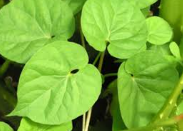Phytochemical and Antimicrobial Studies of Stored Dried Leaves of <i>Alchornea Cordifolia</i> (Shum &Thonn) Mull. Arg. (Euphorbiaceae)
Main Article Content
Abstract
Background: Herbal medicines are promising remedies in the fight against antimicrobial resistance and the readily availability of target medicinal plants all year round is very essential. This study was aimed at assessing the antimicrobial properties of dried leaves of Alchornea cordifolia after being stored for five and a half years.Ethanol and hot water maceration, and soxhlet extraction of the stored dried leaves of Alchornea cordifolia were carried out followed by phytochemical screening. Antimicrobial test of the extracts against Staphylococcus aureus, Escherichia coli, Pseudomonas aeruginosa, and Candida albicans was carried out using agar cup plate and disc diffusion methods. Minimum inhibitory (MIC) and minimum bactericidal concentrations (MBC) of the plant extracts against the test organisms were conducted.Phytochemical screening revealed the presence of tannins, saponins and flavonoids. Both the aqueous and ethanol extracts were active against all the tested organisms: S. aureus was the most susceptible followed by E. coli, Ps aeruginosa, and C. albicans. The MIC values of the extracts against C. albicans, and Ps. aeruginosa were 20 mg/ml, 10 mg/ml and 10 mg/ml for hot water macerated extract, ethanol macerated extract and ethanol Soxhlet extract. The extracts of leaves of A. cordifolia were found to be active against the microorganism tested even after the leaves were stored for five and a half years. The activities observed were similar to that of fresh A. cordifolia leaves
Metrics
Article Details

This work is licensed under a Creative Commons Attribution-NonCommercial 4.0 International License.
References
Olaleye MT, Adegboyega OO, Akindahunsi AA. Alchornea cordifolia extract protects Wistar albono rats against acetaminophen-induced liver damage. African Journal of Biotechnol. 2006; 5: 2439-2445
Adeshina GO, Kunle OF, Onaolapo JA, Ehinmidu JO, Odama LE. Antimicrobial Activity of the Aqueous and Ethyl Acetate Sub-Fractions of Alchornea
cordifolia Leaf. European Journal of Medicinal Plants. 2012; 2(1), 31–41.
Mavar-Manga H., Haddad M., Pieters L., Baccelli C., Penge A., Quetin-Leclercq J. Anti-inflammatory compounds from leaves and root bark of Alchornea cordifolia (Schumach. & Thonn.) Müll. Arg. J. Ethnopharmacol. 2008; 115:25–29.
Osei AC, Acheampong A, Boakye YD, Akwata D, Okine M. In vitro anthelminthic, antimicrobial and antioxidant activities and FTIR analysis of extracts of Alchornea cordifolia leaves. J. Pharmacogn. Phytochem. 2019; 8:2432–2442.
World Health Organization: https://www.who.int/news-room/fact-sheets/detail/antimicrobial-resistance
Hiremath GU. Evaluation of Physicochemical and Phytochemical Parameters of Amarantus caudatus leaves. International Journal of Pharmacy.2012. ISSN 2230-8407.
Nugraha SE, Achmad S, Sitompul. Antibacterial Activity of ethyl acetate fraction of passion fruit peel (Passiflora edulis Sims) on Staphylococcus aureus and Escherichia coli. Indonesian J. of Pharm. And Clin. Res. 2019; 2(1): 7-12
Fadehan G, Boamah D, Adotei D, Edoh Edoh et al. Screening of Ageratum conyzoides Linn and Alchornea cordifolia (Schumach & Thonn) extracts for antibacterial activity. Eur J Med Plants. 2015; 10(4):1–7. https:// doi.org/ 10. 9734/ EJMP/ 2015/ 20739
Akinpelu DA, Abioye EO, Aiyegoro OA, Akinpelu OF, Okoh AI, "Evaluation of Antibacterial and Antifungal Properties of Alchornea laxiflora (Benth.) Pax. & Hoffman", Evidence-Based Complementary and Alternative Medicine. 2015; Article ID 684839, 6 pages, 2015. https://doi.org/10.1155/2015/684839
Mohammed R, Ibrahim S, Atawodi S, Eze E, Suleiman J, Malgwi I. Anti-diabetic and haematological effects of n-butanol fraction of Alchornea cordifolia leaf extract in streptozotocin-induced diabetic wistar rats. Sci. J. Biol. Sci. 2013; 2:45–53.
Jacob J, Olaleye M, Olugbuyiro J. Hepatoprotective effect of Alchornea cordifolia leaf on liver damage in albino rats. Int. J. Appl. Sci. Biotechnol. 2014; 2:217–221. doi: 10.3126/ijasbt.v2i2.10473.
Odimegwu DC, Okoye FBC, Nworu SC, Esimone CC. Anti-respiratory syncytial virus activities of leaf extracts of Alchornea cordifolia and Alchornea floribunda. Afr. J. Pharm. Pharmacol. 2018; 12:97–105.
Trease EE, Evans WC. General methods associated with the phytochemical investigation of herbal products. Trease and Evans Pharmacognosy (13th Edition). 2002; New Delhi: Saunders: 137 – 148.
Akinpelu DA, Kolawole DO. “Phytochemical and antimicrobial activity of leaf extract of Piliostigma thonningii (Shum),” Science Focus. 2004; 7:64–70.Olorundare EE, Emudianugbe TS, Khaar GS, Kuteyi SA, Irobi DN. “Antibacterial properties of leaf extract of Cassia alata,” Biological Research Communications. 1992; 4: 113–117.
Trease EE, Evans WC. Pharmacognosy (15th Edition). English Language Book Society, Bailliere Tindall, Britain. 2009; 378 – 480.
Mamta S, Jyoti S, Rajeev N, Dharmendra S, Abhishek G. Phytochemistry of Medicinal Plants. Journal of Pharmacognosy and Phytochemistry. 2013; 1(6): 168-182.
Kaczmarek B. Tannic Acid with Antiviral and Antibacterial Activity as A Promising Component of Biomaterials- A Minireview. Materials (Basel). 2020 Jul 20; 13(14):3224. doi: 10.3390/ma13143224. PMID: 32698426; PMCID: PMC7412100.
Wieslaw, Andrew M. 2000. Saponins in foods, feed stuffs and medicinal plants. Springer Limited. DOI - 10.1007/978-94-015-9339-7
Böttcher S., Drusch S. Interfacial properties of saponin extracts and their impact on foam characteristics. Food Biophys. 2016;11:91–100. doi: 10.1007/s11483-015-9420-5.
Biharee A, Sharma A, Kumar A., Jaitak V. Fitoterapia Antimicrobial flavonoids as a potential substitute for overcoming antimicrobial resistance. Fitoterapia. 2020; 146:104720. doi: 10.1016/j.fitote.2020.104720.
Wu T, Zang X, He M, Pan S, Xu X. Structure–Activity Relationship of Flavonoids on Their Anti-Escherichia coli Activity and Inhibition of DNA Gyrase. J. Agric. Food Chem. 2013; 61:8185–8190.doi:10.1021/jf402222v.
Donadio G, Mensitieri F, Santoro V, Parisi V, Bellone M, De Tommasi N, Izzo V, Piaz FD. Interactions with Microbial Proteins Driving the Antibacterial Activity of Flavonoids. Pharmaceutics. 2021; 13:660. doi: 10.3390/pharmaceutics13050660.
Adounkpe F, Aimé CA, Viridiane A, Victorien D, Jean‑Robert K, Marc M, Lamine B‑M. Use of the leaves of Alchornea cordifolia (Schumach. & Thonn.) Müll (Euphorbiaceae) and prospects for treatment of infections due to multidrug-resistant bacteria Bulletin of the National Research Centre (2022) 46:132 https://doi.org/10.1186/s42269-022-00821-0
Ebenyi LN, Nwakaeze AE, Moses IB, Iroha IR, Uzoeto JO, Ugochukwu JI, Eddison IO, Okamkpa CJ. Antibacterial activity of Alchornea cordifolia leaves found in Ebonyi state, Nigeria. International Journal of Advances in Pharmacy, Biology and Chemistry. 2017; 6(1): 46-51.
Umar A, Wada NM, Ambi AA, Ibrahim AA. Antibacterial Activity of the Leaf Extract of Alchornea cordifolia (Christman Bush) Against Selected Bacteria Isolates. International Journal of Biological, Physical and Chemical Studies (JBPCS). 2020; 2(1): 23-28


